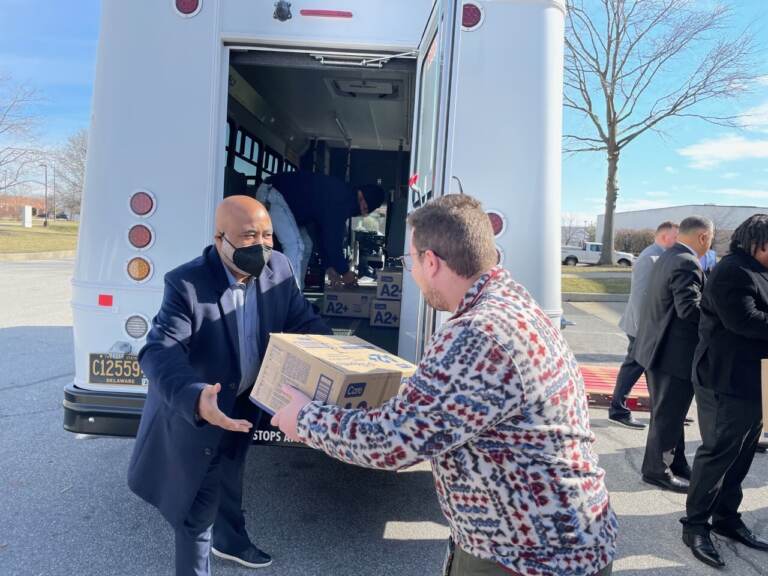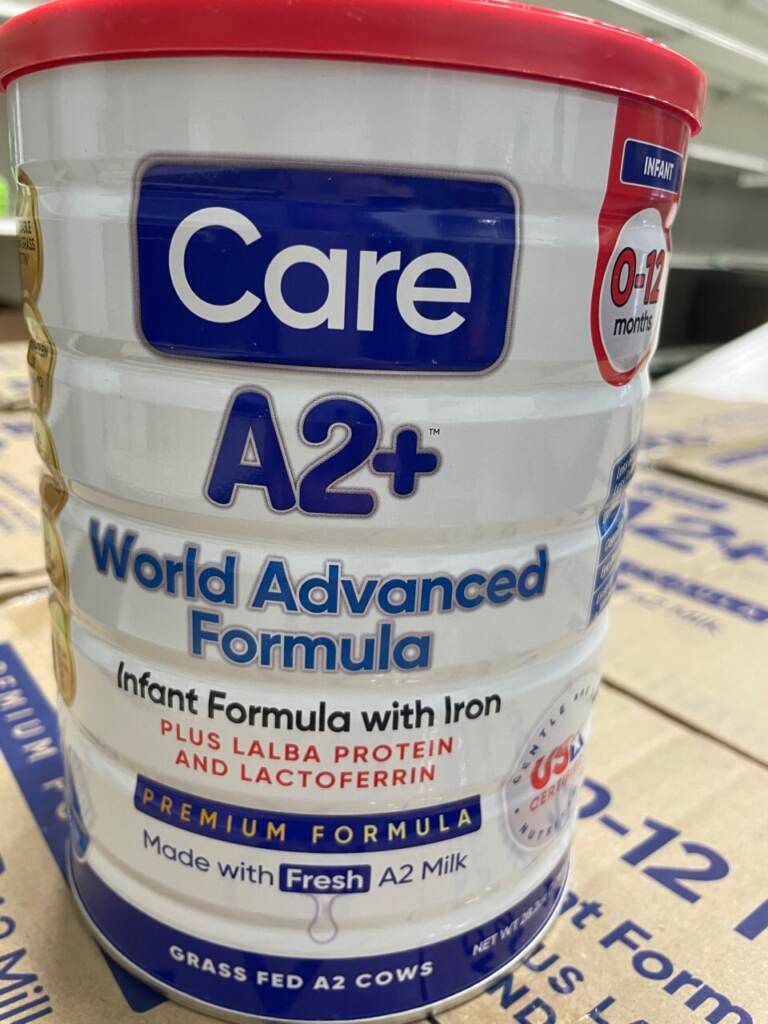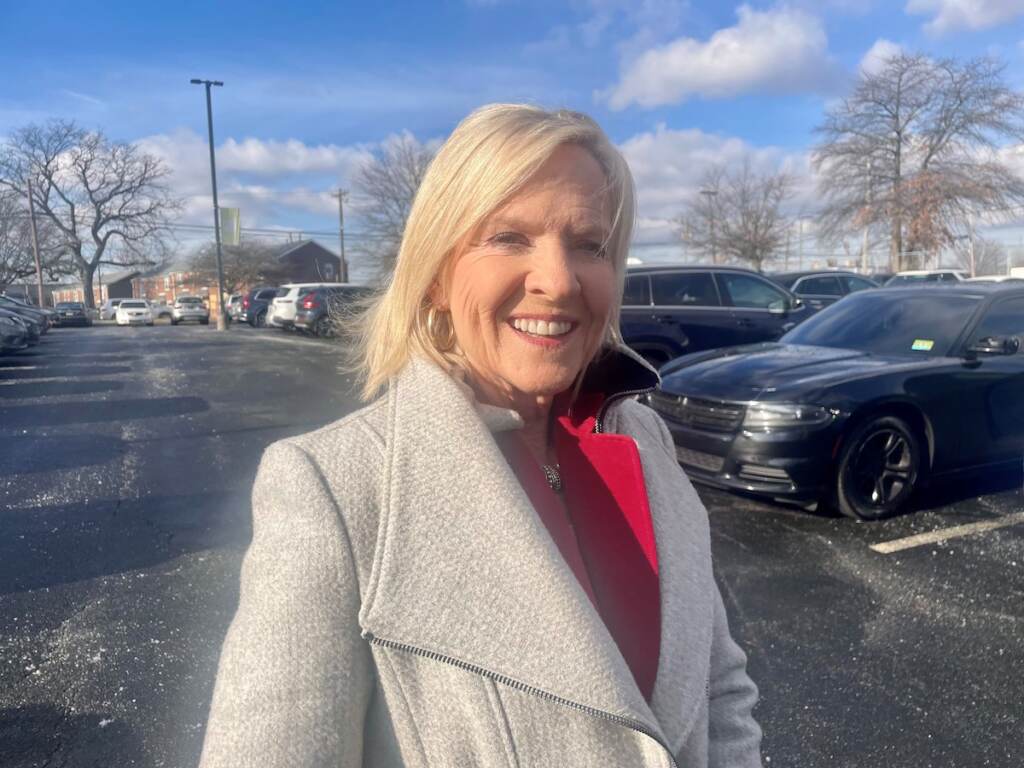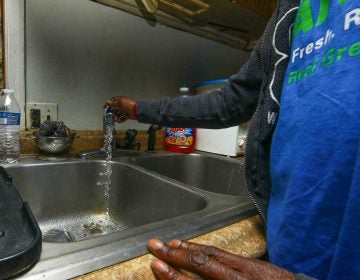Free baby formula is being distributed to Delaware parents in need
The 28.2-ounce canisters of powder are enough for a three-week supply. They arrived courtesy of a collaboration of state officials, nonprofits and an Australian manufacturer.

State Rep. Franklin Cooke (left) loads a box of baby formula onto a truck with an unidentified volunteer. (State of Delaware)
With stores still struggling to keep baby formula on shelves in some Delaware communities, parents of infants under age 1 can now get a free supply to last them a few weeks.
That’s because 44,000 large canisters of powder are being distributed, courtesy of a unique partnership between the state, the Donate Delaware nonprofit and a Miami-based pharmaceutical company that produces the formula in Australia.
Parents who can show proof they live in Delaware can get one of the 28.2-ounce canisters at a slew of locations up and down the state that are considered areas of high need. The pickup spots include Boys & Girls clubs, the Food Bank of Delaware, churches, community, and medical centers.

The sites are in communities that the state Division of Public Health have identified as having high infant mortality and premature birth rates, among other factors detrimental to women’s health and birth outcomes.
Rev. Christopher Bullock, pastor of New Canaan Baptist Church in a low-income area south of Wilmington, said he’s heartened that the initiative is targeting needy mothers. “The availability of quality baby formula will help to properly nourish our children and ease the stress level of mothers,’’ Bullock said.
The state paid $1.2 million toward the project, with formula provider/manufacturer Gensco Pharma and health insurer Highmark paying for the shipping.
The baby formula shortage occurred because of ongoing supply-chain issues that began during the pandemic, coupled with a recall from major producer Abbott because of contamination issues.
Lt. Gov. Bethany Hall-Long, whose office led and coordinated the collaboration, says the crisis “that shocked Delaware” persists in her state.

“While there may be more cans on the shelves now, the shortage hit families who were dealing with the effects of the COVID-19 pandemic, balancing work, school, and managing their finances,’’ she said.
“We are thrilled to be able to provide for families in need given the fact that infant formula remains scarce in some communities known as formula deserts.”
Hall-Long said she’s hoping for more loads from Australia, too. She pointed out that the 28.2-ounce canisters from Gensco Pharma could “provide for 21 supplemental formula feedings for each infant.” Hall-Long said the brand being provided — Care Infant Formula A2+ — is approved by the U.S. Food and Drug Administration and the Division of Public Health, and is similar to the popular Similac.
Hall-Long, a registered nurse, said she’s long been concerned that the shortage might lead moms to try to water down the formula to make it last longer. “The one thing we have feared during this time is that people would dilute formula, and that’s very, very dangerous,’’ she said.
Diluting formula deprives babies of needed nutrients and could lead to their hospitalization, according to DEThrives, a collaboration that includes the Division of Public Health and a collaboration of the Delaware Healthy Mother and Infant Consortium.
Robert Andrzejewski, CEO of Donate Delaware and former superintendent of the Red Clay Consolidated School District, said baby formula is one of the basic building blocks a child needs for their education.
“We talk about the importance of students reading by the third grade or the trouble they’re going to have for the rest of their school careers,’’ Andrzejewski said. “If the young ones don’t have proper nutrition when their minds are developing and they’re developing their bodies, we’re going to have even more problems in the future.”
Dara DuPont of Rose Hill Community Center south of Wilmington, which will serve as one distribution point, said the added inventory will be a godsend for families in need.
“Moms call the center all the time asking for help,” she said, “and we are thankful we are able to help them meet the needs of their babies.”
WHYY is your source for fact-based, in-depth journalism and information. As a nonprofit organization, we rely on financial support from readers like you. Please give today.







